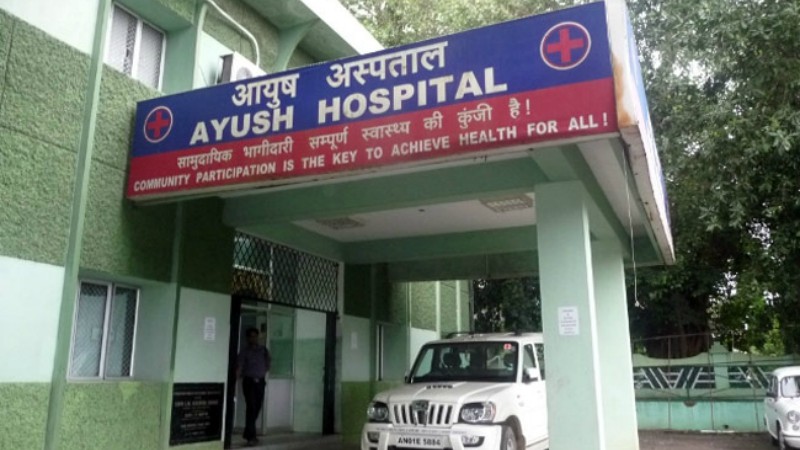
For the first time in India, the Centre has approved of setting 100 (AYUSH) hospitals across the country. AYUSH is an acronym taken from Ayurveda, Yoga or Naturopathy, Unani, Siddha and Homoeopathy. This is used to refer non-allopathic medical systems in India. Every part of the acronym stands for good health, equilibrium, change in bad habits, prevention of diseases, natural cure for medical problems and exercises for the tranquillity of body and serenity of mind. Naturopathy is also a way of life, with the drugless treatment of diseases. The system is based on the ancient practice of application of simple laws of nature. It focuses on eating and living habits, adoption of purified measures, use of hydrotherapy, baths, massage etc.
The union government has recruited over of 4000 AYUSH doctors in primary health centres across the country. The salaries of these doctors will be paid by the Union government. As described by Shripad Yesso Naik Minister of state for AYUSH said that an AYUSH Hospital is equivalent to AIIMS and would be opened within a month at New Delhi.
When seen in this light, the government’s proposal to initiate a process of integration of AYUSH doctors into the fold of modern medicine makes some sense. The Government is contemplating a radical move to provide a short ‘bridge course’ to AYUSH practitioners to equip them to dispense basic medical care at the primary healthcare level. For those of us who have spent most of our lives in relatively affluent urban zones, it is hard to fathom the extent of deprivation faced by India’s rural masses, especially in the healthcare domain. A pragmatic analysis of the condition of healthcare in rural and remote areas will tell us that shortage of doctors is a major problem bedevilling the rural hospitals and primary healthcare centres. The nearly 7 lakh AYUSH practitioners currently practising in India already dispense basic medical care on a daily basis. In a country bedevilled by the shortage of medical practitioners, they arguably provide some medical support to large swathes of populations deprived of healthcare facilities. We can say that some Kind of ‘Doctor’ is Better than no Doctor.
This is to imply that the AYUSH systems of medicine and its practices are well accepted by the community, particularly, in rural areas. The medicines are easily available and prepared from locally available resources, economical and comparatively safe. Today there are about 23,630 dispensaries functioning and about 6,91,470 registered practitioners are available under AYUSH in the country.
The Ministry has approved setting up of two 50-bedded integrated AYUSH hospitals at Theni and Tiruvannamalai districts in Tamil Nadu, he said. A total of Rs 283.6 lakh has been released out of sanctioned amount of Rs 563 crore for conservation and development of medicinal plants across Tamil Nadu.
Our prime minister Narender Modi is one the biggest supporter of Yoga and exercises it in his daily routine. He has collaborated with many countries to support yoga as a medium of teaching to the young age and make the upcoming generation lead a healthy life. The same will be celebrated on 21st June as “International Yoga Day”.
The Indian Government has decided to introduce International Yoga Award Scheme. The award will be introduced with an aim to promote yoga. At present, the AYUSH Ministry is working on the scheme and it will start giving the award by end of this year.





